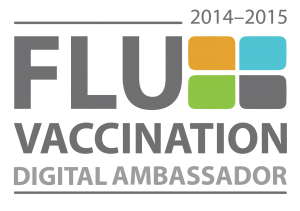First it was the coughing, and then the congestion. Just a cold, I thought. No big deal. So off I went to work.
The next morning, my body temperature had soared to 103.8. This was no cold – a visit to my doctor confirmed I had the flu.
It got worse. A few days later, I was diagnosed with bronchitis, a complication that set off another round of coughing and congestion. The doctor prescribed antibiotics and a bronchodilator inhaler to help my congested airways as well as my breathing.
In all, it took three weeks to fully recover from this viral assault. 
Turns out if I had recognized the flu symptoms sooner, I could have taken measures to keep them from worsening.
Because the common cold and influenza share similar symptoms, many people are unable to differentiate between the two. As a result, some men may ignore symptoms at first, thinking it’s just a cold.
This is dangerous and potentially life-threatening, especially for people with chronic conditions such as asthma and adults 65 or older who are at greater risk for flu complications, including bronchitis and pneumonia.
So how to tell if it’s a cold or the flu? Here are symptoms of each, according to the National Institute of Allergy and Infectious Diseases (NIAID):
- Cold. Sore throat, stuffy nose, sneezing and coughing are common; fever, fatigue, achiness and headache are less common.
- Flu. Fever, fatigue, achiness, headaches and coughing are common, as is extreme exhaustion usually at the beginning of the illness; sore throat, stuffy nose and sneezing occur sometimes.
Since my bout with the flu two years ago, I’ve been an advocate of getting an annual flu vaccination, available either by injection or nasal spray. It’s the single best way to prevent the flu. The U.S. Centers for Disease Control and Prevention (CDC) recommends vaccinations for every person 6 months of age or older and are available in doctor’s offices, clinics and pharmacies.
For extra protection, I make it a habit to wash my hands regularly and to clean and disinfect frequently touched surfaces at home or work, including devices such as computer keyboards and cellphones. This keeps me from picking up germs from others, as well as protecting my family, friends, and coworkers if I get sick.
If you experience flu symptoms, don’t tough it out and go to work. Go see your doctor immediately – it’s not a sign of weakness! – and get a diagnosis. If it’s flu, ask about antiviral medications such as Tamiflu®, which is prescribed for those with flu symptoms for two days or less. People with asthma should not use Relenza®, another antiviral medication, because there is a risk it may cause wheezing.
If you have asthma and come down with the flu, talk with your doctor about adjustments to your treatment plan.



